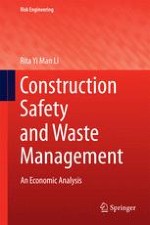
2015 | OriginalPaper | Buchkapitel
1. Sustainable Construction Waste Management in Australia: A Motivation Perspective
verfasst von : Rita Yi Man Li, Huibin Du
Erschienen in: Construction Safety and Waste Management
Aktivieren Sie unsere intelligente Suche, um passende Fachinhalte oder Patente zu finden.
Wählen Sie Textabschnitte aus um mit Künstlicher Intelligenz passenden Patente zu finden. powered by
Markieren Sie Textabschnitte, um KI-gestützt weitere passende Inhalte zu finden. powered by